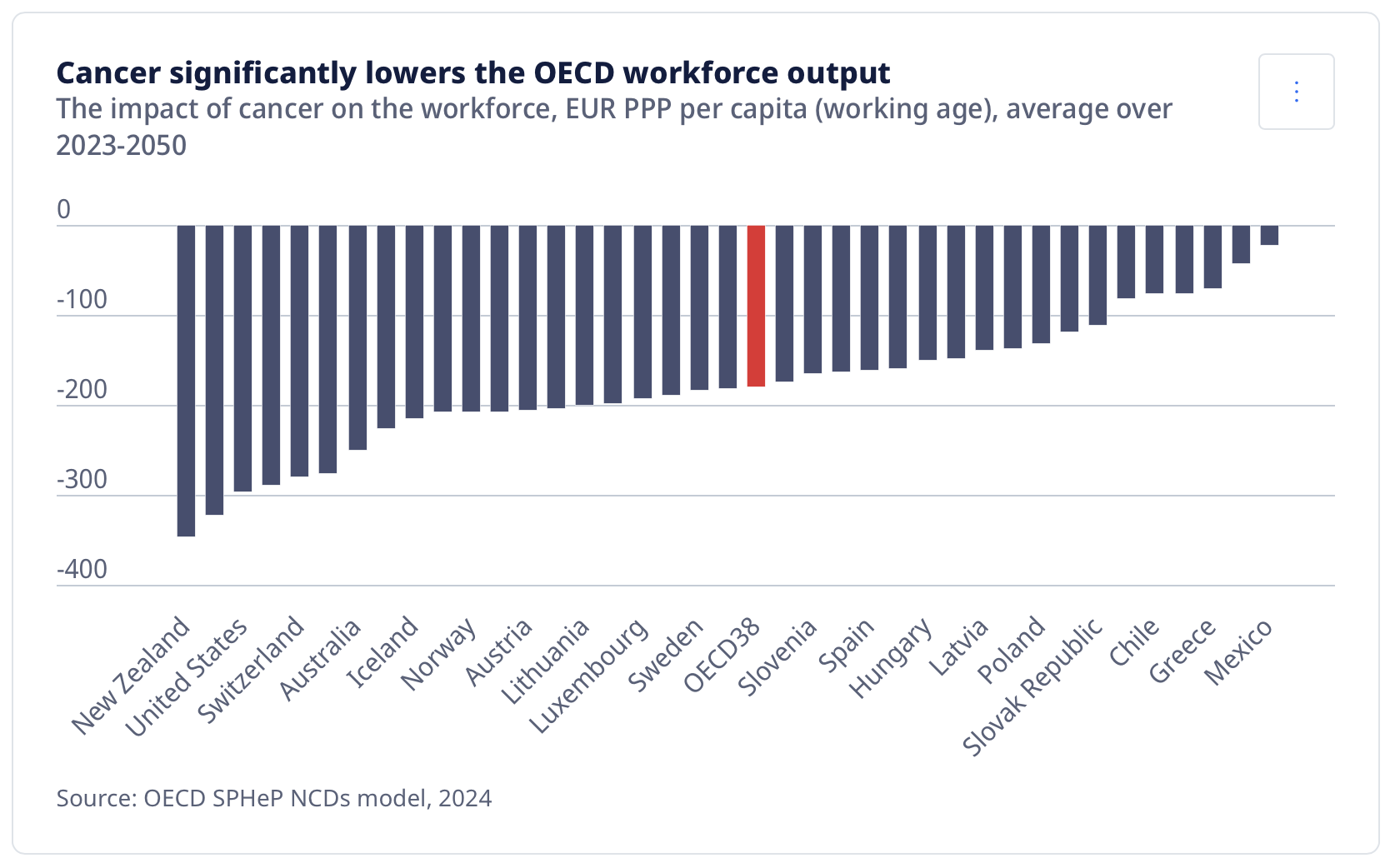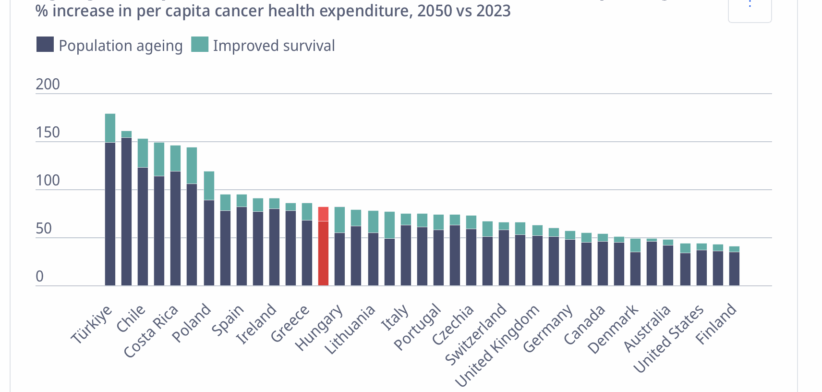The cost of cancer per person on the health system is expected to grow 67 percent by 2050 if there are no changes to how many people get and survive cancer in each age group, according to a OECD report released today.
The true cost of cancer lies beyond the human cost of deaths, but also in a strong economic and societal case for investing more in improving outcomes across the globe, it argues.
An estimated 11 people are diagnosed with cancer every minute across OECD countries.
Cancer causes one in four premature deaths, damages people’s quality of life, their ability to work, and their incomes.
According to OECD estimates, cancer costs health systems $798 billion annually to OECD countries – more than the total annual health budget of France.
Cancer costs are expected to grow even further because of the ageing population, increased survival rates which would add an additional 15 percent, and higher treatment costs from new medicine and technology.
It’s estimated OECD countries will lose the equivalent of 3.1 million full-time workers with a lost workforce output of $290 billion annually equivalent to the annual GDP of Hungary.
The report suggested that countries should improve action to tackle tobacco and alcohol use, unhealthy diets, lack of physical activity and air pollution, as 40 percent of cases can be prevented by addressing these issues.
It advocated for the awareness of screening programs, and optimising the design of screening invitations and delivery.
It also recommended that governments increase awareness of the early signs of cancer among the general population and healthcare workers, and improve referral processes to specialists.









